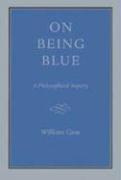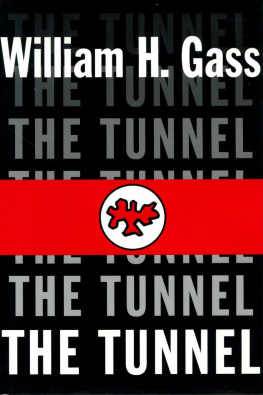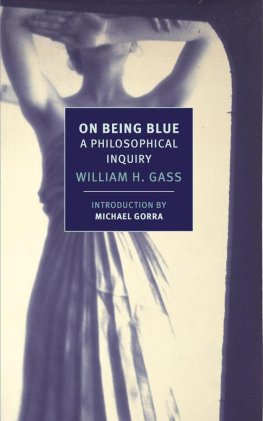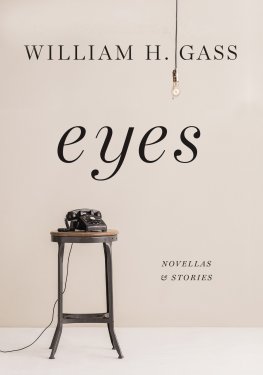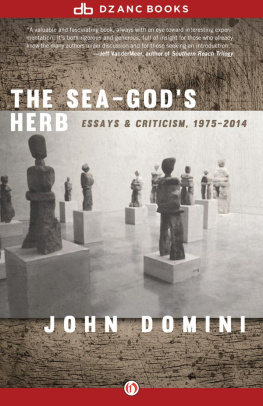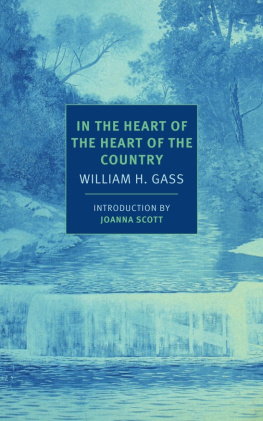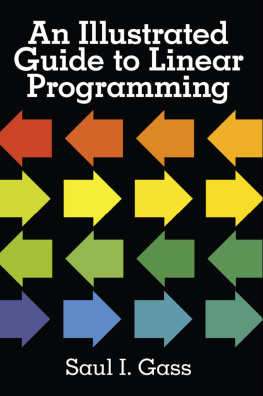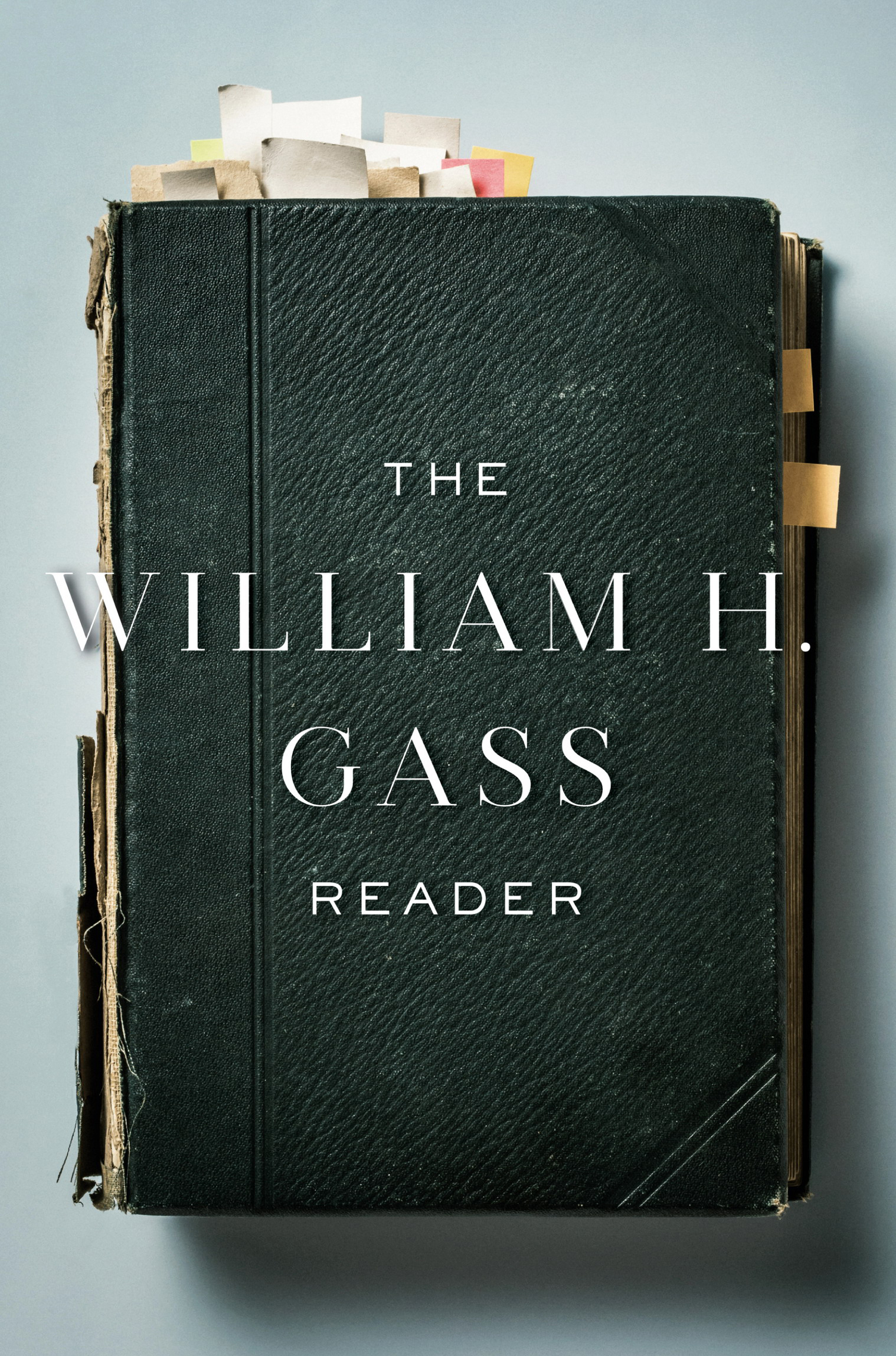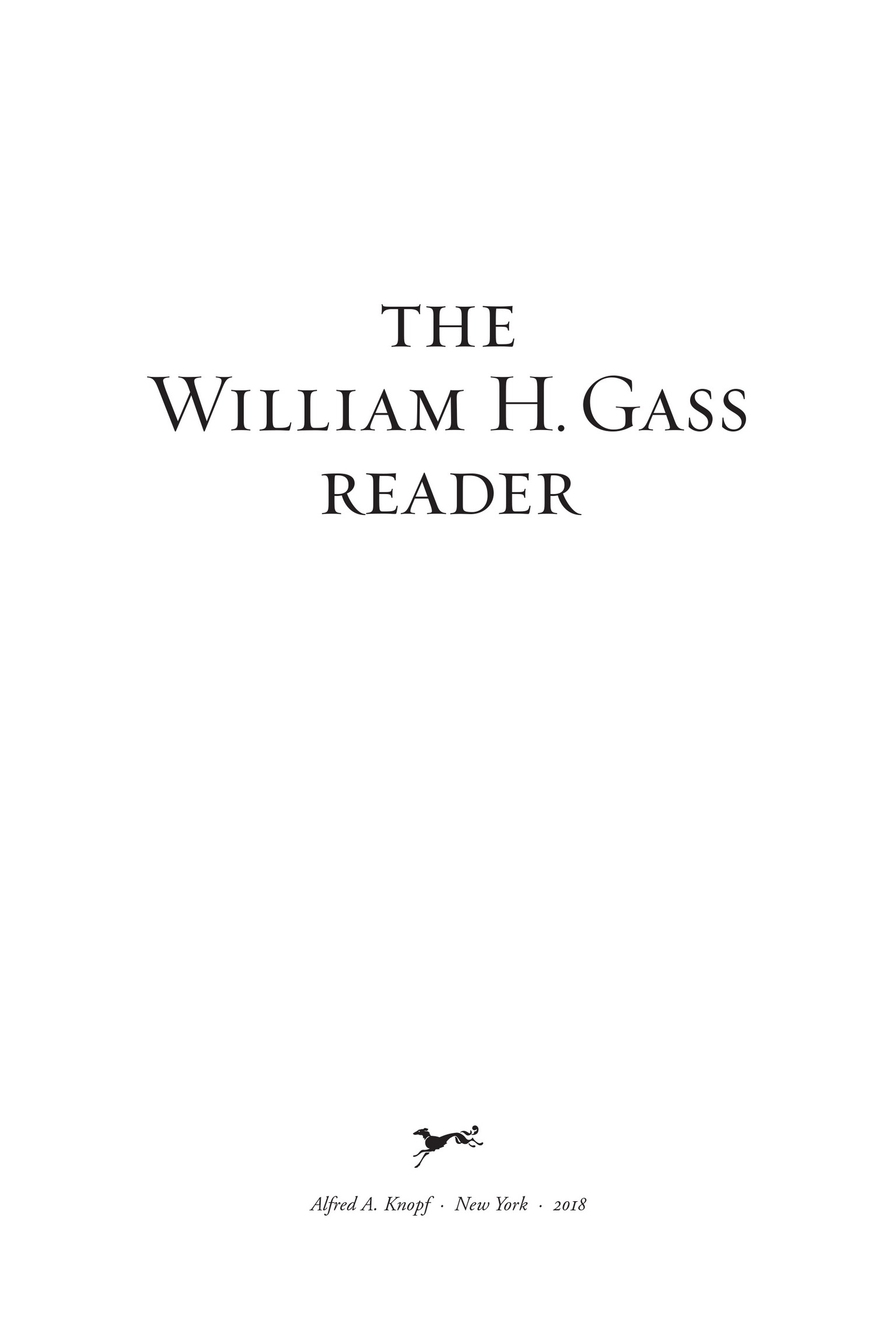Professor John Upsworth has done a task for me I would never undertake: he attaches an address to every piece of The Tunnel, so they appear in the order of their first publication. There were plenty. Some fragments simply repeat themselves, while others are rewritten to appear elsewhere amid alternations. These periodicals desire independence, and can be so read. They also enabled me to feel like a writer during the nearly thirty years of The Tunnel, and pertains to as well, Cartesian Sonata, Middle C, and, recently, Eyes. I also thank Conjunctions, Harpers, The New York Review of Books, Salmagundi, Partisan Review, TriQuarterly, Esquire, Kenyon Review, Delta, The George Review, Antaeus, The Review of Contemporary Fiction, and many others.
Some readers have helped by giving me space, subject, idea, love: my wife, daughter Catherine; literary agent Lynn Nesbit, editor Victoria Wilson.
R ETROSPECTION
Dont look back, Satchel Paige is supposed to have said; someone may be gaining on you. Dont look back, Orpheus was advised; you may find your earlier poems better than the ones you will write tomorrow. Lots wife looked back at Sodom and was so shaken by the sight of the Red Sea swallowing the city she became salt. Look back only if the mess you have made of your life leaves you eager to reach a future that will offer a fairer prospect. Otherwise cover your eyes before blame blinds them the way Oedipuss pin put out his. However, Paul Valry warns us that no one can deliberately walk away from any object without casting a backward glance to make sure he is walking away from it.
For anyone who has reached eighty-seven years, as I have, only the past is likely to have much duration; greed and regret will have eaten the present, which is at best a sliver of cake too small for its plate, while the future fears it may cease before having been. I hear it running to get here, its labored breathing like an old maneighty-sevenon the stairs. Lust and rage, Yeats rightly said, attend ones old age.
So it is in a spirit of disobedience that I look back at what I may have done rather than toward all that remains to be encountered, coped with, perhaps yet accomplished. I say may have done because what one has really done is never clear and certainly never comforting. Rarely does one say, I may have married her but only time will tell.
Your station in the literary world, whatever that might be, does not matter much if youve spent your life chasing words with Nabokovs net. Thats still where the results of your life went, into the killing jar, sentenced to a verbal smother, pinned in place, a display thats initially a cause of mild indifference, and then evermore ignored.
Looking back I find it less painful to concentrate on the kind of thing that concerned me, rather than on the messes I made or on the few fragile triumphs I may have enjoyed. Looking back I find I fit the epitaph Howard Nemerov once wrote for himself in Gnomes and Occasions (1973).
Of the Great World he knew not much,
But his Muse let little in language escape her.
Friends sigh and say of him, poor wretch,
He was a good writer, on paper.
It turns out that these preoccupations, these bad habits, these quirks number at least seven, though I am sure I am ignoring the ones that really matter. They are: naming, metaphoring, jingling, preaching, theorizing, celebrating, translating.
First: naming.
Critics still write of me as if my interest in words was an aberration. Yet Adams task has always seemed to me to be, for a writer, the central one: to name, and in that way to know. It wasnt true for Adam, for whom all names were fresher than the daisy, but it is true for us now: a name no longer merely points something out and distinguishes it in that manner from the rest of the world; every name stands for all that has been thought, felt, said, perceived, and imagined about its referent, and represents all that has been discovered during explorations of its indigenous concepts during two thousand years. And since we humans have the deplorable yet entrancing habit of naming things that do not exist, the realm of names is larger than the realm of things as much as the population of China exceeds that of New York State. This passage about naming trees comes from my first novel, Omensetters Luck (New York: New American Library, 1966), and concerns my unfortunate character Henry Pimber, who will end up hanging himself from one of the branches of the trees he sings about.
The path took Henry Pimber past the slag across the meadow creek, where his only hornbeam hardened slowly in the southern shadow of the ridge and the trees of the separating wood began in rows as the lean road in his dream began, narrowing to nothing in the blank horizon, for train rails narrow behind anybodys journey; and he named them as he passed them: elm, oak, hazel, larch, and chestnut tree, as though he might have been the fallen Adam passing them and calling out their soft familiar names, as though familiar names might make some friends for him by being spoken to the unfamiliar and unfriendly world which he was told had been his paradise. In Gods name, when was that? When had that been? For he had hated every day hed lived. Ash, birch, maple. Every day he thought would last forever, and the night forever, and the dawn drag eternally another long and empty day to light forever; yet they sped away, the day, the night clicked past as he walked by the creek by the hornbeam tree, the elders, sorrels, cedars, and the fir; for as he named them, sounding their soft names in his lonely skull, the fire of fall was on them, and he named the days hed lost. It was still sorrowful to die. Eternity, for them, had ended. And he would fall, when it came his time, like an unseen leaf, the bud that was the glory of his birth forgot before remembered. He named the aspen, beech, and willow, and he said aloud the locust when he saw it leafless like a battlefield. In Gods name, when was that? When had that been?


